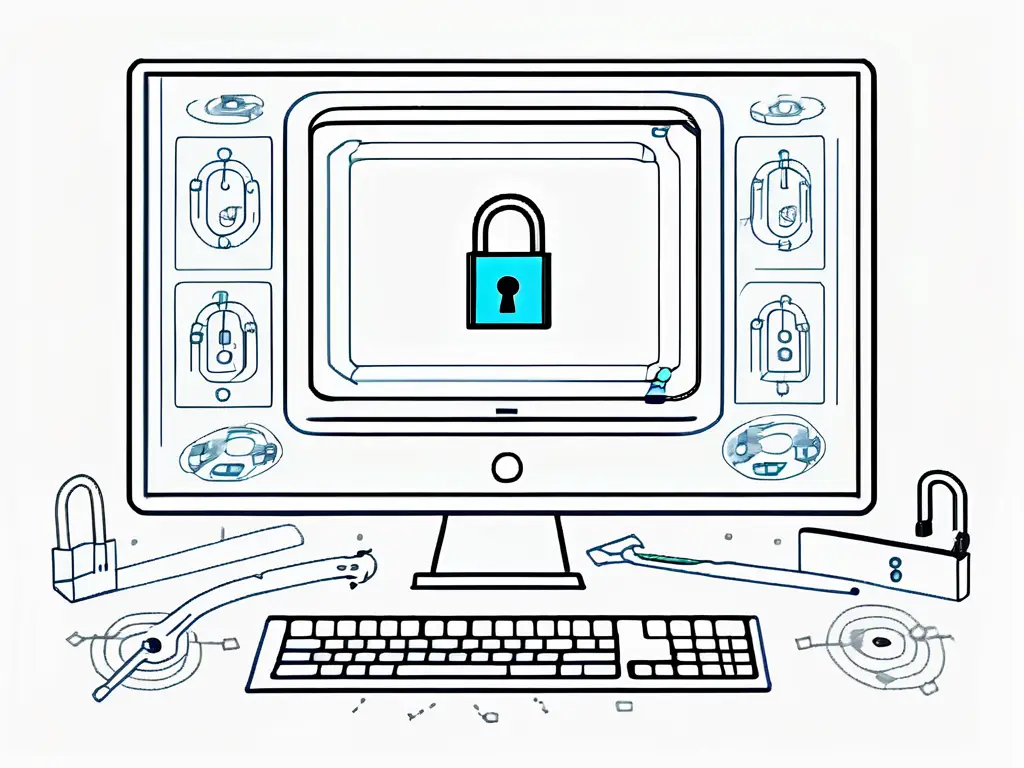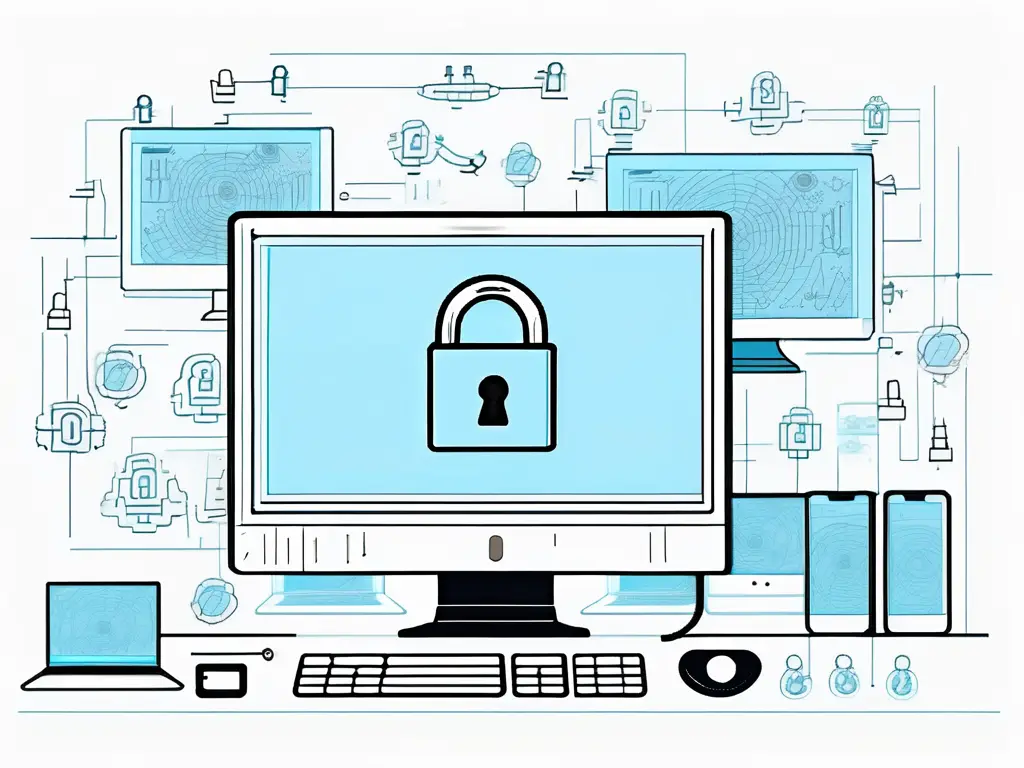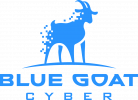The term “script kiddie” has gained recognition for both its negative connotation and intriguing nature. These individuals, often dismissed as mere beginners in the realm of hacking, wield a significant amount of power in the digital landscape. By exploring the term’s origins and dissecting the role of a script kiddie in cybersecurity, we can gain a deeper understanding of its impact. Moreover, we will delve into identifying a script kiddie and the measures that can be taken to protect against their potentially devastating consequences. Finally, we will explore the legal repercussions that script kiddies may face for their actions, shedding light on notable cases.
Understanding the Term ‘Script Kiddie’
Origin and Evolution of the Term
The moniker “script kiddie” emerged in the early days of hacking, denoting individuals who lacked extensive technical knowledge but relied on pre-existing scripts and tools to carry out their malicious actions. These amateurs sought shortcuts to wreak havoc on computer systems, often to showcase their abilities or gain notoriety among their peers.
However, the story of the script kiddie doesn’t end there. As technology advanced and hacking techniques grew more sophisticated, script kiddies adapted. They began utilizing ready-made code and automated tools, enabling them to launch attacks with minimal effort and expertise. These tools, often developed by more skilled hackers, provided script kiddies with a sense of power and control over computer systems, even though their methods may be considered amateurish.
But what drives these individuals to engage in such activities? The allure of the script kiddie lifestyle lies in the thrill of exploration and the desire for recognition. For many, hacking becomes a form of self-expression, a way to challenge the boundaries of technology and leave their mark on the digital landscape. This combination of curiosity, rebellion, and a thirst for recognition fuels the script kiddie culture.
Script Kiddie Vs. Professional Hacker
The distinction between a script kiddie and a professional hacker lies in their motivations, technical skills, and ethical boundaries. While script kiddies often operate with little understanding of the underlying technology, professional hackers possess extensive knowledge and experience in exploiting vulnerabilities for various purposes – some ethically, others maliciously.
A professional hacker possesses the prowess to infiltrate systems, extract sensitive information, and execute complex attacks with precision. They have spent years honing their skills, learning the ins and outs of computer systems, and understanding the intricacies of network security. In contrast, script kiddies depend on the work of others to carry out their exploits, relying on user-friendly tools and pre-existing code rather than crafting their own unique solutions.
However, it is important to note that not all script kiddies are content with their amateur status. Some script kiddies use their initial experiences as a stepping stone to further their knowledge and skills. They may start as script kiddies but eventually evolve into more sophisticated hackers, acquiring the technical expertise needed to develop their own tools and exploit vulnerabilities in novel ways.
This distinction between script kiddies and professional hackers highlights the skill level and expertise gap separating these two groups. While script kiddies may be seen as the “amateurs” of the hacking world, their actions can still have severe consequences, underscoring the importance of understanding their role in the cybersecurity landscape.
The Role of a Script Kiddie in Cybersecurity
Common Activities of Script Kiddies
Script kiddies engage in a range of activities, albeit with varying degrees of sophistication. These individuals often target low-hanging fruit, exploiting well-known vulnerabilities and utilizing easily obtainable tools to wreak havoc. Common activities include launching DDoS (Distributed Denial of Service) attacks, defacing websites, spreading malware, and engaging in identity theft.
While their actions may seem insignificant compared to the exploits of professional hackers, script kiddies can still cause significant disruptions. The widespread availability of hacking tools and tutorials on the internet has made it easier for them to execute attacks on vulnerable systems, amplifying the prevalence of their mischief.
One example of a common activity among script kiddies is using botnets to carry out DDoS attacks. These individuals often rent or purchase botnets and compromised computer networks to flood a targeted website or server with overwhelming traffic. This flood of traffic overwhelms the system’s resources, rendering it unable to respond to legitimate user requests. The impact of such attacks can be severe, leading to prolonged downtime, financial losses, and damage to an organization’s reputation.
Impact on Internet Security
Although script kiddies’ actions are predominantly driven by a desire for recognition or amusement, they can have far-reaching implications for internet security. By exploiting vulnerabilities and engaging in cyber-attacks, they not only compromise the targeted systems but also highlight the need for robust security measures.
The widespread use of ready-made tools and scripts by script kiddies underscores the importance of timely software updates and patches. Neglecting these updates enhances the chances of falling victim to their exploits. This serves as a stark reminder that cybersecurity is a shared responsibility and necessitates proactive measures to safeguard the integrity of online systems and networks.
Script kiddies can inadvertently contribute to the development of new security measures. When their attacks are successful, organizations and security professionals are forced to analyze the vulnerabilities exploited and develop countermeasures to prevent similar incidents in the future. This constant cat-and-mouse game between script kiddies and security experts fuels the evolution of cybersecurity practices, developing more robust defenses against a wide range of threats.
It is important to note that not all script kiddies are malicious. Some may be young individuals who are curious about technology but lack the knowledge or skills to engage in more sophisticated activities. By providing resources and guidance, these individuals can be steered towards ethical hacking and cybersecurity, where their curiosity and enthusiasm can be channeled into positive contributions to the field.
Identifying a Script Kiddie
Typical Characteristics of a Script Kiddie
Unraveling the identity of a script kiddie can be challenging. However, certain telltale signs can assist in identifying these individuals. Script kiddies often overreact to readily available tools, showcasing a lack of understanding of the core concepts behind their actions. Their limited technical skills often translate into inconsistent attack patterns and a propensity for flashy, attention-seeking behaviors.

For instance, script kiddies may resort to Distributed Denial of Service (DDoS) attacks, flooding a target’s network with overwhelming traffic. While this may temporarily disrupt the target’s operations, it lacks the finesse and sophistication of more advanced hacking techniques. Script kiddies are more interested in causing chaos and gaining attention than in achieving significant malicious goals.
Script kiddies gravitate towards well-known, widely publicized exploits rather than exploring uncharted vulnerabilities. This preference for popular exploits stems from their desire to fit in and be part of the hacking community. Using these well-known exploits, script kiddies can easily find tutorials and step-by-step guides online, allowing them to execute attacks without fully comprehending the underlying mechanisms.
The social aspect of their exploits often precedes their motivation to achieve their malicious intent. Script kiddies may engage in activities such as defacing websites or hacking social media accounts to gain recognition from their peers. They seek validation and notoriety within the hacking community, often participating in online forums and chat rooms to boast about their exploits.
Tools and Techniques Used by Script Kiddies
Script kiddies rely on various tools and techniques to facilitate their hacking endeavors. These include widely available hacking software, automated scripts, and exploit frameworks. By leveraging these tools, script kiddies attempt to compromise systems without the need for advanced coding skills or extensive knowledge.
The accessibility and simplicity of these hacking tools make them the weapon of choice for script kiddies. However, this reliance on pre-packaged solutions also limits their capabilities. While they may be able to launch basic attacks, such as scanning for open ports or exploiting known vulnerabilities, they cannot adapt or create new attack methods.
Scatter kiddies can cause significant disruptions and threaten individuals and organizations despite their limitations. To counter their actions effectively, cybersecurity professionals must stay informed about the latest tools and techniques used by script kiddies. By understanding the vulnerabilities these tools exploit, security experts can develop robust defenses and implement proactive measures to mitigate the impact of script kiddie attacks.
How to Protect Against Script Kiddies
Essential Security Measures
To defend against the threats posed by script kiddies, organizations and individuals must implement essential security measures. These include employing robust firewall protection, regularly updating software and operating systems, and implementing strong, unique passwords. Additionally, educating users about potential threats and conducting periodic security audits can enhance the overall cybersecurity posture.

By adopting a proactive approach to security and staying abreast of the latest cyber-attack trends, organizations can effectively shield themselves from the exploits of script kiddies.
Role of Cybersecurity Education in Prevention
Education plays a pivotal role in preventing cyber-attacks fueled by script kiddies. By raising awareness about the consequences of hacking and promoting ethical hacking practices, we can divert misguided enthusiasts towards more constructive pursuits. Cybersecurity education can empower individuals to channel their passion for technology into legitimate cybersecurity careers, fostering a more secure digital future.
Organizations must invest in continuous training programs that keep employees informed about emerging threats and best practices in cybersecurity. Regular workshops and simulated phishing exercises can help employees effectively recognize and respond to potential security breaches. By fostering a culture of cybersecurity awareness within the organization, employees become the first line of defense against script kiddies and other malicious actors.
Importance of Multi-Factor Authentication
Another vital security measure in protecting against script kiddies is implementing multi-factor authentication (MFA). MFA adds an extra layer of security by requiring users to provide multiple verification forms before gaining access to sensitive information or systems. This additional step significantly reduces the risk of unauthorized access, even if passwords are compromised. Organizations should prioritize the adoption of MFA across all systems and applications to bolster their defenses against script kiddies and other cyber threats.
The Legal Consequences for Script Kiddies
Cyber Laws and Script Kiddies
Despite their perceived naivety, script kiddies’ activities have legal implications. Cyber laws are in place to combat cybercrime and hold individuals accountable for their actions. The legal ramifications faced by script kiddies can include criminal charges, hefty fines, and even imprisonment.

Law enforcement agencies and organizations worldwide continue to enhance their capacity to detect and apprehend script kiddies. By effectively implementing and enforcing cyber laws, we send a strong message that malicious actions in cyberspace will not be tolerated.
Notable Legal Cases Involving Script Kiddies
Over the years, numerous cases have shed light on the consequences faced by script kiddies who venture into illegal hacking activities. Notable examples include Adrian Lamo, who gained public attention after unwittingly exposing Army intelligence analyst Chelsea Manning as the source of leaked documents to WikiLeaks.
These high-profile cases act as a cautionary tale for aspiring script kiddies, emphasizing the real-world consequences that await those who breach the boundaries of legality.
However, it is important to note that not all script kiddies face severe legal consequences. Depending on the nature and extent of their actions, some individuals may receive warnings or probation. The legal system considers factors such as age, intent, and the potential for rehabilitation when determining the appropriate punishment.
In addition to criminal charges, script kiddies may face civil lawsuits filed by the victims of hacking attempts. These lawsuits seek compensation for damages caused by computer systems’ unauthorized access and disruption. The financial burden of legal fees and potential settlements can have long-lasting effects on the lives of script kiddies.
Script kiddies who engage in hacking activities targeting critical infrastructure, government systems, or financial institutions may attract the attention of national security agencies. In such cases, the legal consequences can extend beyond traditional criminal charges, with individuals potentially being labeled as threats to national security and facing additional scrutiny.
Conclusion
Script kiddies represent a noteworthy faction of hackers within the cybersecurity landscape. Although their actions may seem trivial compared to those of professional hackers, their impact on internet security should not be disregarded. By understanding their motivations, characteristics, and techniques, we can better protect ourselves against their exploits. Furthermore, the legal consequences faced by script kiddies serve as a deterrent and a reminder that their actions have tangible ramifications. Through education, proactive security measures, and the enforcement of cyber laws, we can collectively strive towards a safer and more resilient digital realm.
As we’ve explored the risks associated with script kiddies and the importance of robust cybersecurity measures, it’s clear that the right expertise is crucial in safeguarding your business’s digital assets. Blue Goat Cyber, a Veteran-Owned leader in cybersecurity, offers a comprehensive suite of services designed to protect against the threats posed by script kiddies. Our team’s extensive experience in medical device cybersecurity, penetration testing, and compliance ensures that your operations are secure and resilient against cyber threats. Don’t let your business be vulnerable to the whims of amateur hackers. Contact us today for cybersecurity help and partner with Blue Goat Cyber to transform your cybersecurity challenges into a competitive advantage.
